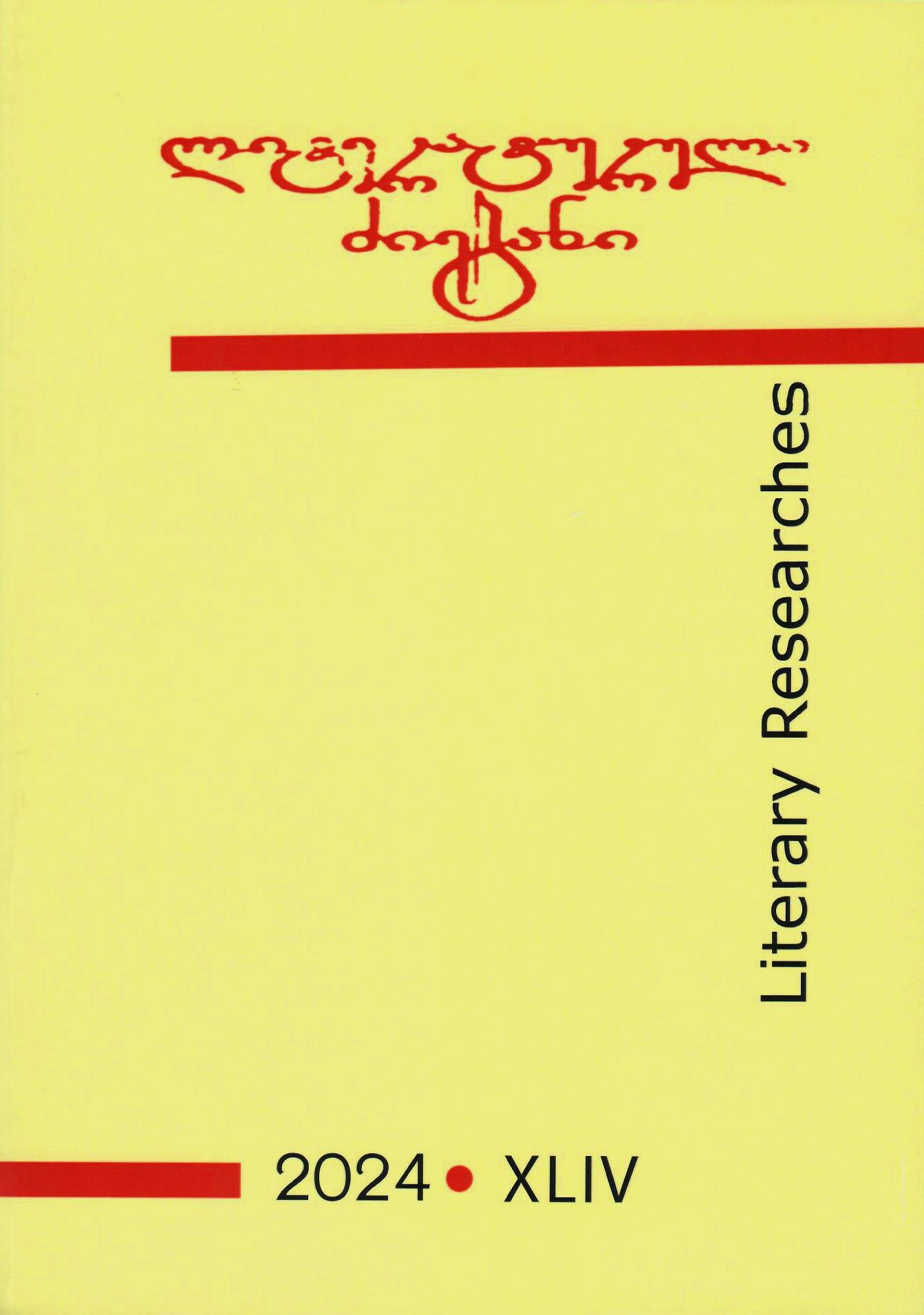მედეას მითის თანამედროვე ლიტერატურული ინტერპრეტაციები მარგინალიზაციიდან დომინაციამდე (კრისტა ვოლფის რომანი: „მედეა – ხმები“ და ნინო ხარატიშვილის პიესა „ჩემი და შენი გული [მედეა]“)
გამოქვეყნებული 2024-11-27
საკვანძო სიტყვები
- მედეას მითი,
- ფემინისტური დისკურსი,
- აუტსაიდერი,
- მარგინალიზაცია,
- მასკულინური პერსპექტივა
როგორ უნდა ციტირება
ანოტაცია
The article presents modern interpretations of the Medea myth based on Nino Kharatishvili's play "My Heart [Medea]" and Christa Wolf's novel "Medea-Voices". In particular, using a comparative analysis, it is discussed how different passages or motifs of the Medea myth change within the framework of two different texts and, accordingly, how Medea's identity is constructed/formed.
In the position of the male characters of both novels (Creon, Jason, Acama), we can examine the masculine perspective, according to which, the woman was primarily understood as a being obedient to the will of the man, with a strictly defined role and behavioral models. In both texts, Medea disrupts the dominant discourse.
Medea's identity as a vengeful and destructive woman, in contrast to Christa Wolff's novel, is preserved in Nino Kharatishvili's play. Her confrontation with Creon and Jason's punishment are perceived by the patriarchal system not as an attempt to protect dignity and restore justice, but as an irrational and spontaneous act of revenge by a desperate woman, which is why the system tries to demonize and marginalize her. From a feminist perspective, Medea's struggle is perceived as a successful attempt to move the female character from the periphery to the center and to dominate men in a strictly defined socio-cultural role and free herself from masculine constraints.
In Christa Wolff's novel, Medea experiences complete frustration after exposing the system. Medea becomes a victim of sexism, brutal political interests and repression of the system.

